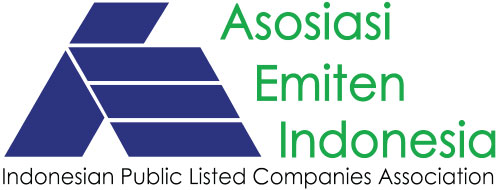
Electric Mobility Transformation in Indonesia: The Strategic Role of PT Vektor Teknologi Mobilitas Tbk (VKTR)
In an effort to face the challenge of climate change, vehicle electrification is an important solution for a sustainable energy transition. In Indonesia, the transportation sector has a significant contribution to carbon emissions, especially from commercial vehicles. Realizing this urgency, PT Vektor Teknologi Mobilitas Tbk (VKTR), a subsidiary of the Bakrie Group, has come up with a vision and strategy to accelerate the adoption of electric vehicles in the commercial sector.
Awareness of Climate Change
Global warming and its impacts, such as rising earth temperatures, have been a major concern since the early 2000s. Bakrie Group, which has been active in the fossil energy sector, feels the need to contribute to the energy transition. This step is part of the company's responsibility to reduce negative impacts on the environment while supporting efforts towards net-zero emissions.
VKTR sees the commercial vehicle sector as a top priority. In contrast to private vehicles which are only used a few hours a day, commercial vehicles such as trucks and buses operate up to 24 hours a day. This intensity of use makes commercial vehicles the largest contributor to emissions in the transportation sector.
Vision and Mission of PT VKTR
VKTR is committed to accelerating the adoption of electric vehicles in the commercial sector. This step is realized by:
Developing Local Production Infrastructure
VKTR has built a factory to produce electric vehicle components, such as chassis. This step aims to support the development of local industry.
Focus on Commercial Vehicle Market
With a truck population of around 6 million units and buses around 240 thousand units in Indonesia, this sector has great potential for electrification.
Strategy and Challenges
Although the opportunities for commercial vehicle electrification are enormous, VKTR faces various challenges. One of them is fuel oil (BBM) subsidies, which make the price of fossil fuels more competitive compared to electricity. In addition, the electric vehicle market in Indonesia is still in its early stages, so it requires public education and adequate infrastructure development.
Government support in the form of regulations and incentives is urgently needed. With policies that encourage the energy transition, the adoption of electric vehicles can be accelerated.
Great Opportunities in the Future
Despite these obstacles, the electric vehicle market in Indonesia is still wide open. Electrification of commercial vehicles can bring various benefits, such as reduced operational costs, reduced carbon emissions, and improved air quality.
In the next 20 years, this transformation is expected to create a strong electric vehicle ecosystem, while supporting Indonesia's target to achieve net-zero emissions. With VKTR's production capacity currently reaching 3,000 units per year, there is still plenty of room for further expansion and development.
Conclusion
PT Vektor Teknologi Mobilitas Tbk (VKTR) plays a strategic role in the transformation of electric mobility in Indonesia. By focusing on commercial vehicles, the company not only supports reducing carbon emissions but also creates new economic opportunities in the electric mobility sector. To realize this vision, support from the government, community and other industry players is very necessary.
VKTR is optimistic that with strong collaboration, Indonesia can become a pioneer in developing environmentally friendly and sustainable electric mobility.
Full Video: From Vision to Realization: Building an Electric Vehicle Ecosystem with VKTR




 Back to Home
Back to Home







